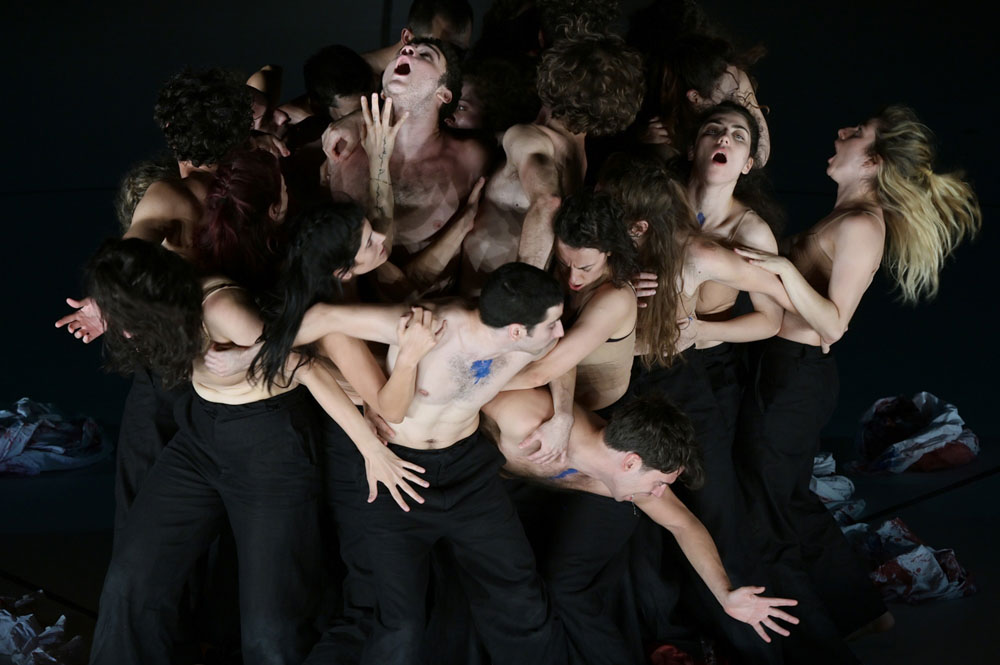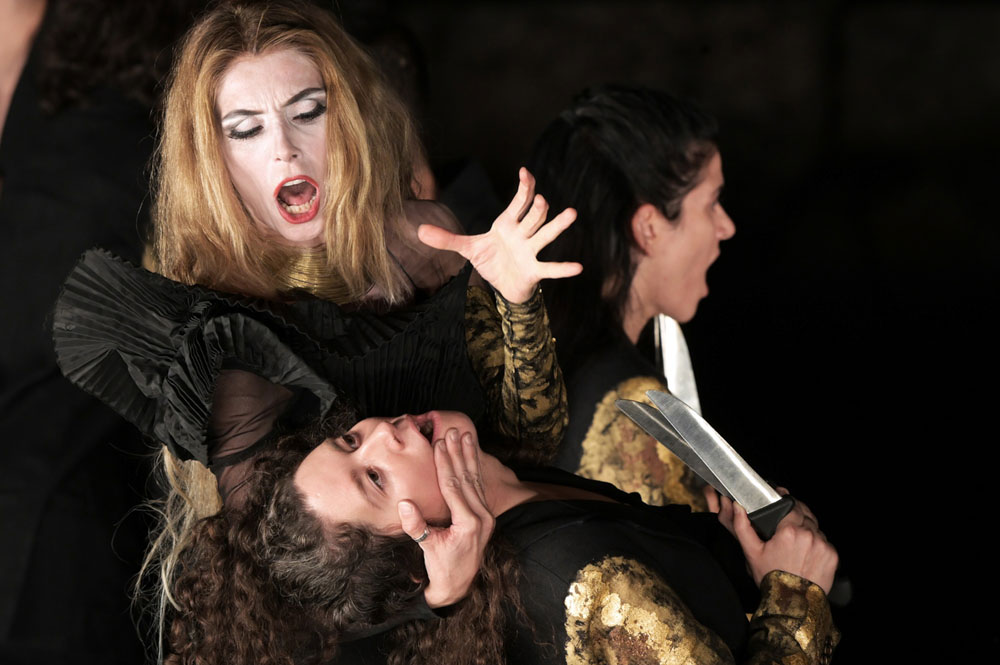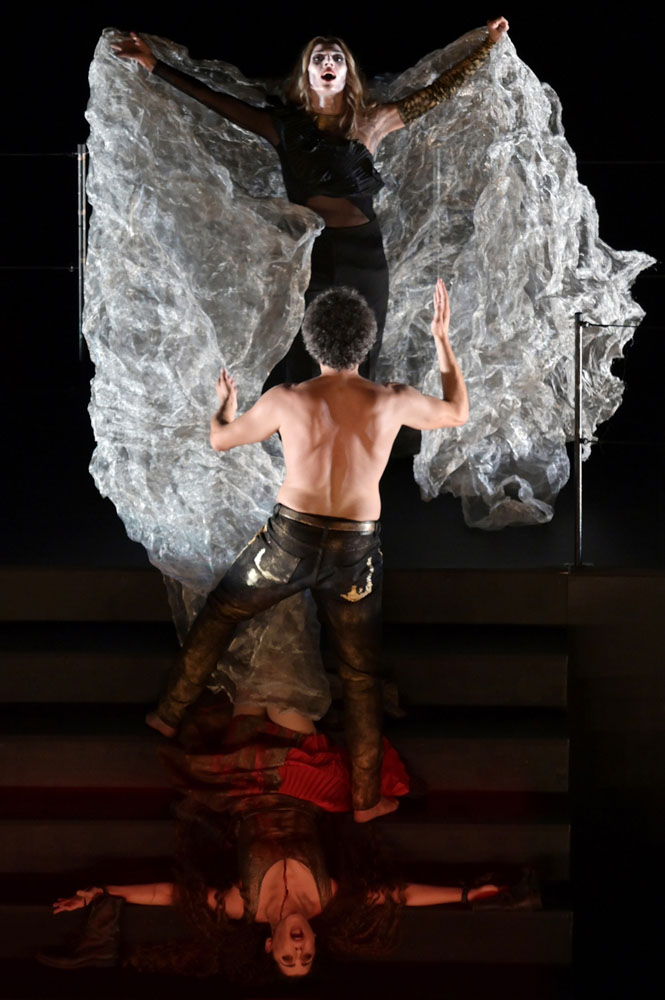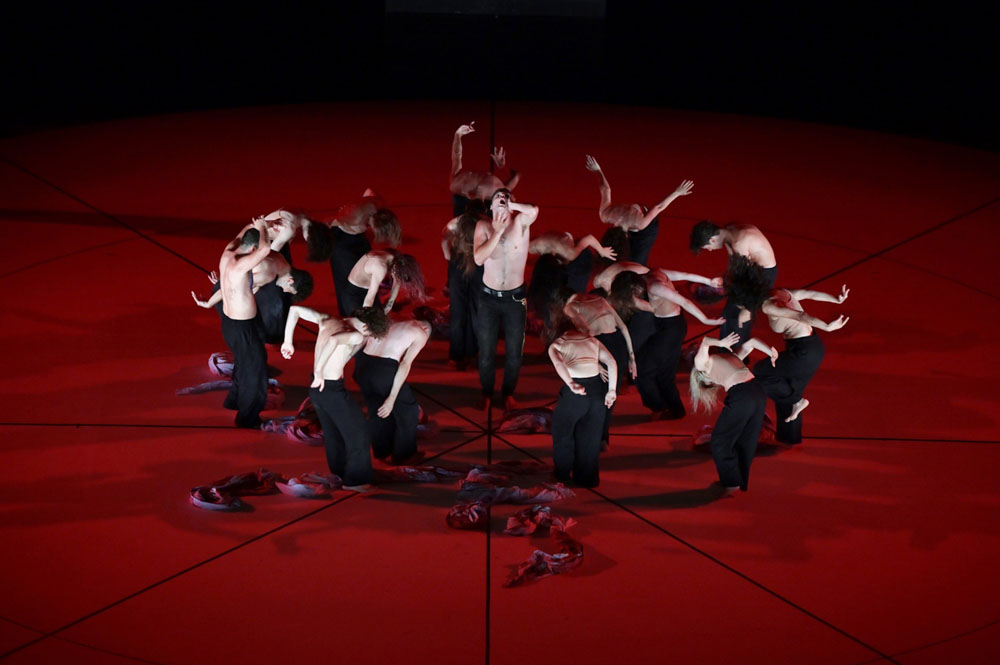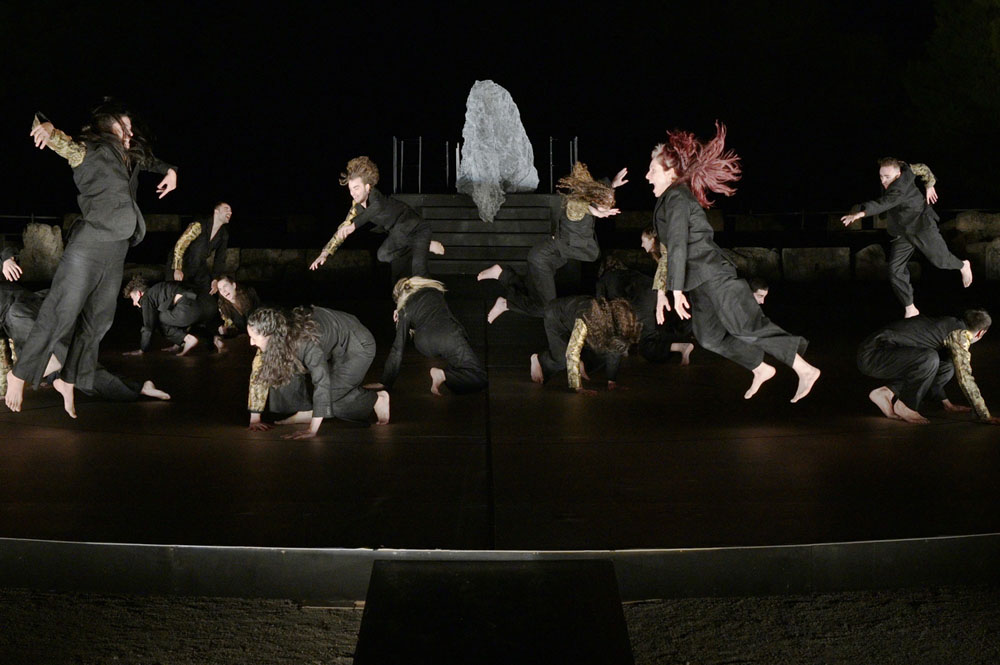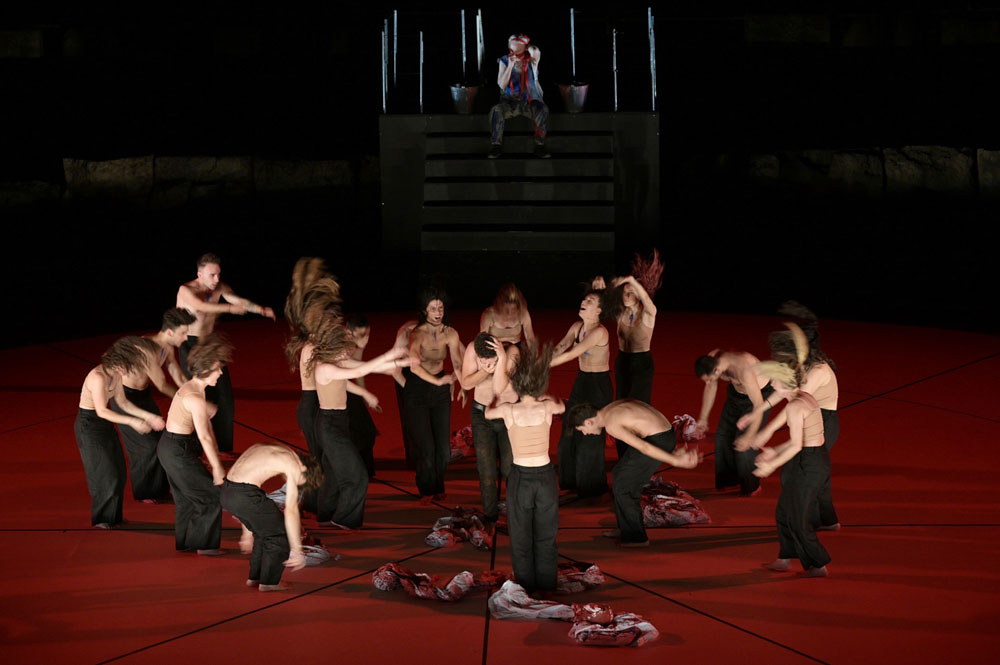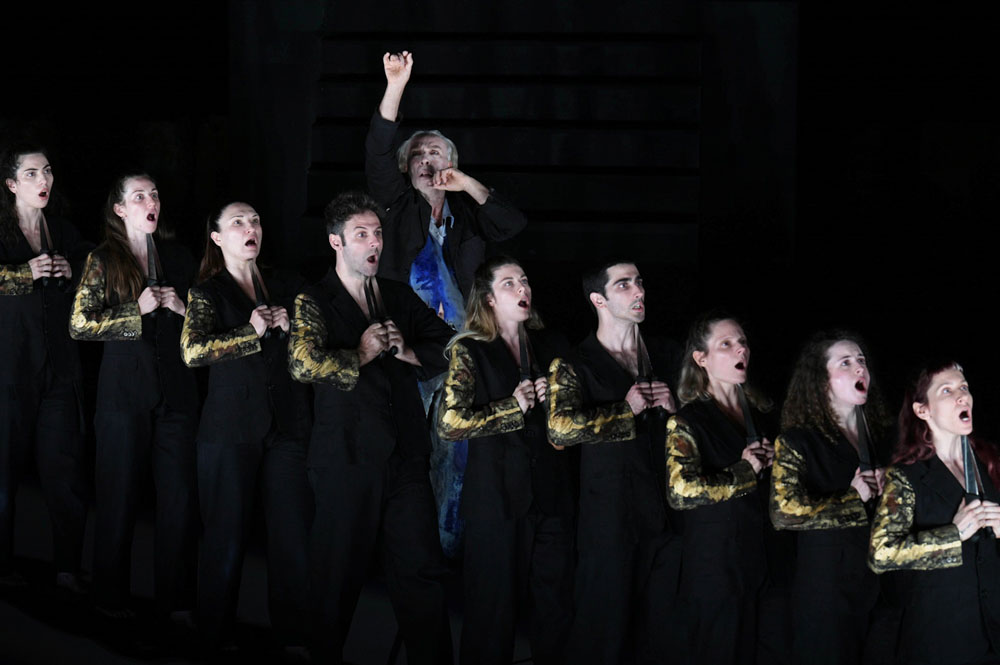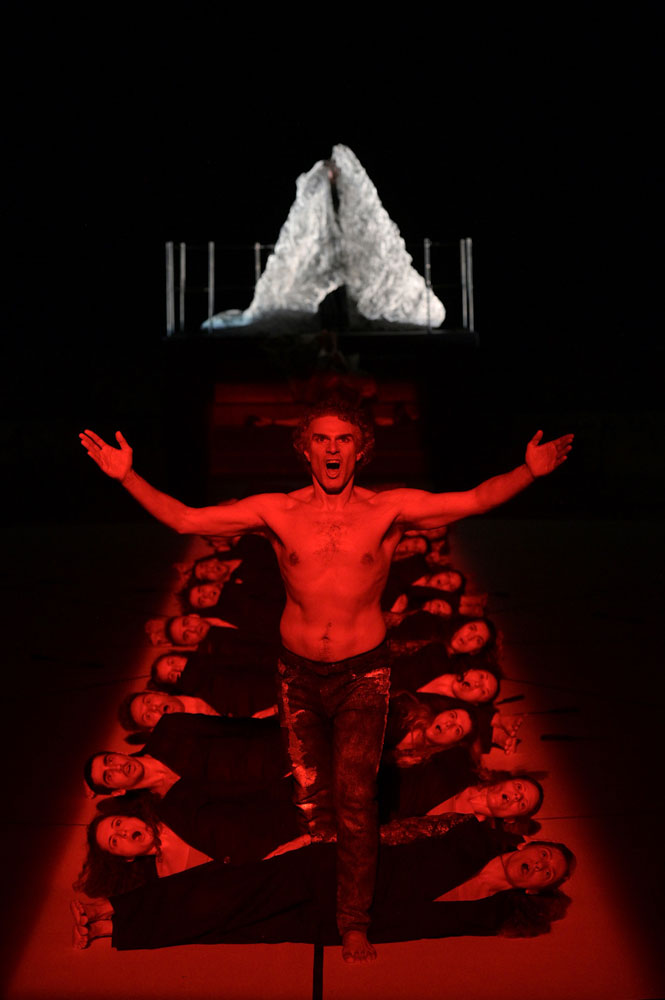Direction: Theodoros Terzopoulos
Ancient Theatre of Philippi
Saturday, 24th August, at 20.30
The Oresteia trilogy by Aeschylus, directed by Theodoros Terzopoulos, will be presented at the Ancient Theatre of Philippi on Saturday, 24th August, at 20:30, as part of the 67th Philippi Festival.
This iconic production, rich in intellectual and philosophical depth, marks an unprecedented artistic event and the first collaboration between the internationally acclaimed Greek director and the country’s premier theatre stage.
About the Oresteia
In 458 BC, during a time of violent social and political upheavals, Aeschylus presents the Oresteia (Agamemnon, The Libation Bearers, The Eumenides.) at the Dionysia Festival, the only surviving trilogy of ancient drama and his last surviving work, composed just two years before his death, reflecting many of the rapid changes of his era.
The central axis of the trilogy is the tragic circuit of Orestes, which permeates all the characters in the drama and the chorus through successive stages: from destabilisation to impasse, to madness. Athena exploits this situation in the trilogy’s third part to institutionalise democracy by force through a dubious peace settlement.
In the first two parts of the trilogy, Agamemnon and The Libation Bearers, the murders that end the tyrannical reigns of Agamemnon and Clytemnestra mark the climax of a new period of crisis and destabilization, reflected in The Eumenides. The Furies, chthonic deities representing instincts and impulses, safeguard memory. Aware that any conflict with the gods is a predestined defeat, they revolt and threaten the city’s order. Orestes must pay, not only to punish the crime but also to ensure the memory of the conflict remains alive.
Athena strives at all costs to broker a “peace pact” between the gods and the Furies, offering them concessions and privileges. To secure their surrender, she shifts the violence into the realm of language. Her rhetoric introduces deceptive persuasion, lies, and manipulation into the political sphere. The Furies willingly submit. Adorned in the characteristic crimson garments of metics, they are declared the Eumenides and removed from the heart of the city. They are consigned to obscurity, to forgetfulness, to the depths of the earth. The democratic regime is established. But not without cost. Whatever is incompatible with the new order—the part of the living body linked to memory, instincts, and primal energy—has been exiled. The new order is imposed by the mechanisms of power in such a way that these vital forces seem as though they never existed.
Though the Furies accept their new social status as resident aliens, their internal nature remains unchanged. Like natural phenomena that do not vanish from the earth but follow a spiral path of transformation, escalation, and de-escalation, we can imagine the chthonic deities retreating and withdrawing, only to reemerge, continuously taking on new, unexpected forms.
Director’s Note
Why does the Oresteia continue to exert a terrifying attraction? One possible answer might be because there is a need for a deeper connection with Myth in humans. The myth of the Oresteia is dangerous; it belongs to the uncanny and the strange, provoking terror because it reveals the wild, the violent, and the laws of the depths that cannot be tamed. Clytemnestra invites us to break the mirror together to birth from its fragments a new nightmarish image, which will, however, retain the dark roots of the myth.
Our intention is to explore the depths of the Oresteia myth, seeking the unpredictable, the unusual, and the paradoxical. The characters offer their bodies on the altar of the unfamiliar, continually posing questions and dilemmas. The aesthetic of the performance emerges from the dynamic relationship between the Body, the Myth, Time, and Memory. We revisit the fundamental ontological question, “what is it about?”, a question that defies definitive answers but constantly drives us towards a deeper investigation into the root of sound, word, the multiple dimensions of the human enigma, and the reconstruction of a new Myth.
Theodoros Terzopoulos
Oresteia by the National Theatre of Greece
The Oresteia has been staged by the National Theatre of Greece at Epidaurus five times to date: in 1954 and 1959 under the direction of Dimitris Rondiris, in 1972 directed by Takis Mouzenidis, in 2001 directed by Giannis Kokkos, and in 2019, when Io Voulgaraki, Lilly Meleme, and Georgia Mavragani directed Agamemnon, The Libation Bearers, and The Eumenides, respectively, marking their directorial debuts at Epidaurus.
Credits
Translation: Eleni Varopoulou
Direction – Dramaturgical Editing: Theodoros Terzopoulos
Associate Director: Savvas Stroubos
Stage – Costume – Lighting Design: Theodoros Terzopoulos
Original Music Composition: Panagiotis Velianitis
Dramaturgy Advisor: Maria Sikitano
Performance Dramaturge: Eirini Mountraki
Assistant Director: Theodora Patiti
Assistant Stage Designer: Sokratis Papadopoulos
Assistant Costume Designer: Panagiota Kokkorou
Assistant Lighting Designer: Konstantinos Bethanis
Artistic Collaborator: Maria Vogiatzi
Cast: Evelyn Assouad (Cassandra), Tasos Dimas (Watchman/Herald), Konstantinos Zografos (Pylades), Elli Ingliz (Nurse), Kostas Kontogeorgopoulos (Orestes), David Maltese (Aegisthus), Anna Marka Bonissel (Prophetess), Nikos Ntasis (Apollo), Dinos Papageorgiou (Herald), Aglaia Pappa (Athena), Savvas Stroubos (Agamemnon), Alexandros Tountas (Servant), Niovi Charalambous (Electra), Sophia Hill (Clytemnestra/The Shadow of Clytemnestra)
Chorus: Babis Alefantis, Natalia Georgosopoulou, Katerina Dimati, Konstantinos Zografos, Pyrros Theofanopoulos, Elli Ingliz, Vasilina Katerini, Thanos Maglaras, Elpiniki Marapidi, Anna Marka Bonissel, Lygeri Mitropoulou, Rosy Monaki, Aspasia Batatoli, Nikos Ntasis, Vangelis Papagiannopoulos, Stavros Papadopoulos, Myrto Rozaki, Giannis Sanidas, Alexandros Tountas, Katerina Hill, Michalis Psalidas, Giulio Germano Cervi
Video: Nikos Pastras
Photography: Johanna Weber
“Oresteia” by Aeschylus
Ancient Theatre of Philippi
Saturday, 24th August, at 20.30
Duration: 200 minutes
Ticket prices: 20€ Regular // 15€ Senior 65+, Group tickets // 10€ Student, Unemployed, Disabled
Online Pre-sale: https://www.ticketservices.gr/event/national-theatre-oresteia/?lang=el
Due to the large audience expected to attend the performance, we would like to inform you that holders of invitations to the 67th Philippi Festival must confirm their attendance one day in advance. Please note that entry will be strictly limited to invitation holders and their companion(s) only. For this reason, holders are kindly requested to bring official identification with them.
Thank you for your understanding.
Pre-sale
Kavala: Visitor Information Center of the Municipality of Kavala (formerly EOT), Central Square, tel: 2510-620566, open daily from 10:00 to 14:00 and from 18:00 to 21:00. On the day of the performance, tickets will be available for pre-sale at the ticket office of the Ancient Theater of Philippi from 18:30 in the evening.
Krinides: Café “Proskinio,” Ancient Theater of Philippi, tel. 2510516090
Drama: “Americanino 30” G. Papandreou 30, Tel. 2521058206
* Entry to the theater is prohibited after the performance begins.
** Once again this year, there will be a transportation option for spectators by a KTEL Kavala bus to and from the ancient theater of Philippi upon presentation of the respective theater performance ticket and a special fare of 4.00€. Departure from the KTEL of Kavala at 18:15 and return after the end of the performance.
For more information and seat reservations, you can call the offices of the Municipal and Regional Theater of Kavala at 2510-220876 during office hours.
